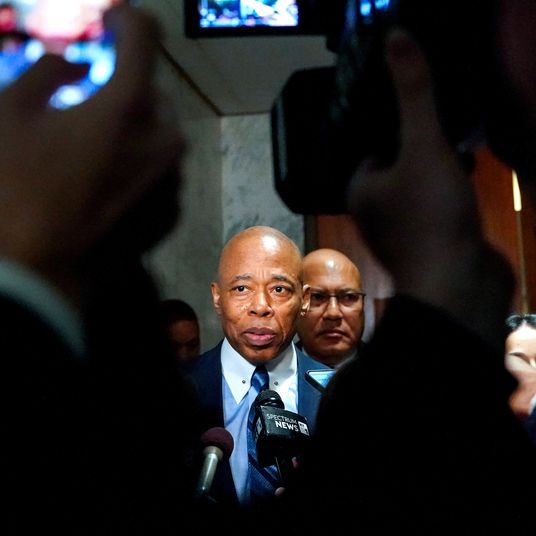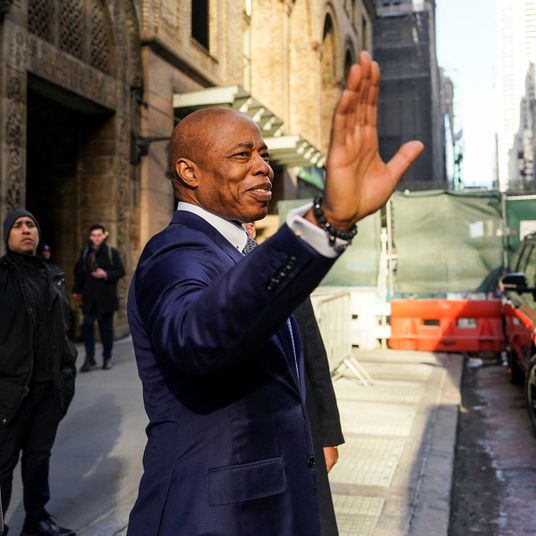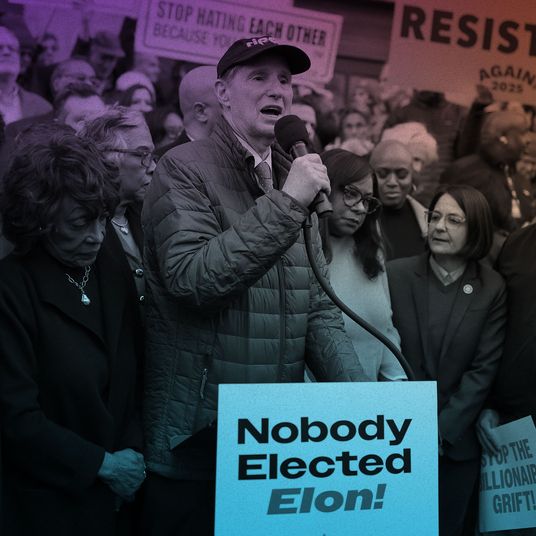
For several hours on Monday night, several Democratic senators took to the Senate floor to protest the Republicans’ Obamacare repeal bill. The most moving speech came from Senator Mazie Hirono of Hawaii, who was diagnosed with kidney cancer earlier this year and is undergoing surgery on Tuesday.
“I will be back as quickly as I can to keep up the fight against this mean, ugly bill,” she said. “The stakes are too high to stay silent.”
To someone flipping past CSPAN, it might have looked like a filibuster, but the Democrats were only staging a protest. The real action was taking place around the same time on Twitter, where Republican senator Susan Collins said she would vote “no” on the procedural measure to begin debate on the GOP health bill.
Since Majority Leader Mitch McConnell is using the budget-reconciliation process to pass Obamacare repeal, there’s essentially no legislative maneuver the minority party can use to stop the bill. But with millions set to lose their health-care coverage, and their constituents pushing them to resist the Trump administration agenda, Democratic senators have vowed to do everything they can to defeat the Better Care Reconciliation Act.
Fortunately for them, four Republicans stalled their party’s bill on Monday when they announced they will vote against the motion to proceed with debate on the bill. With more GOP senators wavering on the bill, Democrats are focusing on the only tool they have at their disposal: maintaining pressure on their Republican colleagues through protest.
Last week there was talk of slowing all Senate business and offering tens of thousands of amendments to prevent the bill from passing. But if Republicans were in agreement on the bill, Senate procedure wouldn’t prevent them from passing it quickly.
The budget reconciliation process does involve a “vote-a-rama” in which lawmakers can propose an unlimited number of amendments, which must then be voted on. But as George Washington University political science professor Sarah Binder told the Washington Post, the Senate’s presiding officer and the parliamentarian can shut down the process if it’s clear one side is being obstructionist.
“In reality, that’s not going to happen,” she said. What was more likely, she said, is that someone would make a point of order that the Democrats were being “dilatory” — that is, slowing down the process unnecessarily. The presiding officer — the Republican senator on duty to manage floor debate — would be asked to rule on whether that was the case and would likely agree. Democrats could appeal the decision, but a majority vote would end the process.
Former Senate Budget Committee chairman Judd Gregg agreed. “It’s not a filibuster because you can’t win,” he told Bloomberg BNA. “It’s not going to go on forever. At some point, all members get disgusted with voting in the middle of the night, having unlimited debate on amendments. It comes to an end.”
Democratic lawmakers haven’t ruled out any tactics, but it appears they’re focused on keeping up the public pressure on the Republican senators who have reservations about the bill. Over the weekend, Senator Bernie Sanders held large rallies against the bill in Rust Belt states that voted for Trump. Monday night on the Senate floor, Senator Al Franken asked his Republican colleagues to “do the right thing.”
“I urge them to talk to their constituents about the consequences,” he said. “Vote no on this bill for their sake, for the sake of your constituents.”
A protest outside the chamber drew more attention. Senator Cory Booker and Representative John Lewis took a seat on the Capitol steps and started talking about health care on a Facebook live stream. Over the next few hours, more and more Senate Democrats joined their sit-in, including Chris Murphy, Kirsten Gillibrand, and Minority Leader Chuck Schumer. Booker invited a group of onlookers to take a seat, and eventually the protest grew to include several hundred people.
“Right now, the biggest enemy we face is not a handful of senators blocking health care for millions, but it’s the silence of the many who have the power to do something about this,” Booker said. “Remember, the power of the people is greater than the people in power … let your voice be heard.”
After a huge public outcry helped tank the House’s first attempt to repeal Obamacare, members of Congress quietly kept working on the bill, and they managed to ram a slightly modified version through the chamber in early May.
McConnell tried the same tactic, taking weeks to craft the Senate bill behind closed doors, but liberal activists and lawmakers say they won’t repeat their mistake. There are protests planned every day this week in D.C. (Wednesday’s activity: form a human chain around the Capitol), and other demonstrations target key Republicans in their home states, such as Nevada’s Dean Heller.
“Democrats are going to keep sharing our stories,” Senator Patty Murray said on the Senate floor, “and the stories of our constituents to make sure people understand how devastating and ‘mean’ Trumpcare would be for the people we represent, and to do everything we can to keep up the pressure to stop it.”






























